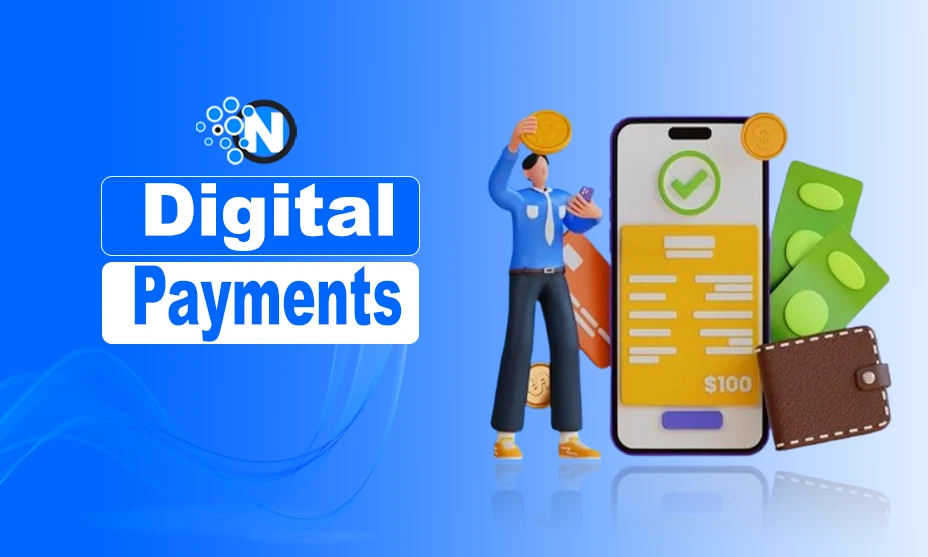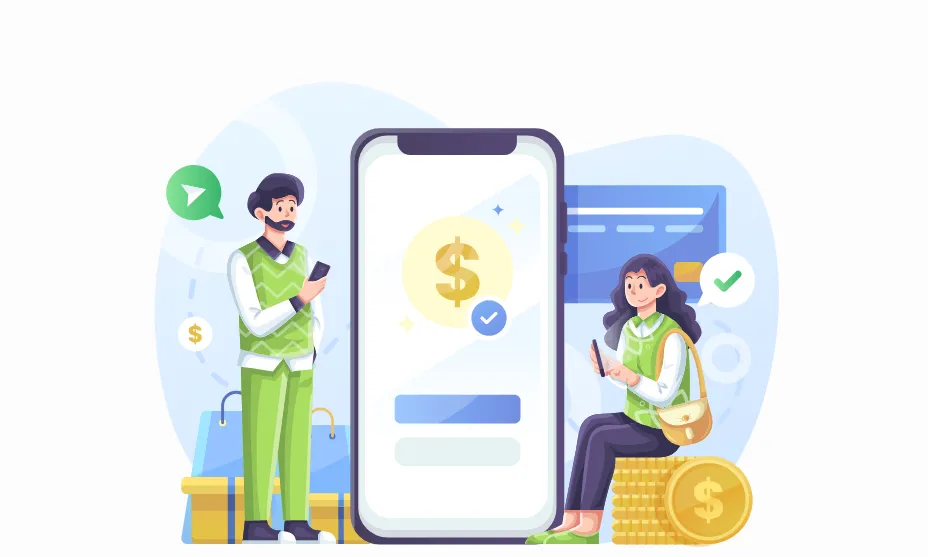Digital Payments – Changing the Way We Pay

The way we pay for goods and services has changed dramatically in the last few decades. New payment methods seem to be popping up all of the time. The rise of the internet brought with it e-commerce and other electronic transactions and this paved the way for new methods to be introduced.
Things have certainly come a long way since American Express introduced its first charge card in 1958 and the way we pay has never been so diverse. Traditional cash payments are being replaced by instant and secure alternatives. From contactless card payments to mobile wallets and cryptocurrency, financial transactions are now faster and more convenient than ever.
In this article, I will talk about how digital payments are changing the way we pay.
Let’s start!
Digital Payments: A Brief History
For decades, cash was dominant. And there are still plenty of people out there proclaiming that cash is king. Nevertheless, there has been a huge rise in the number of digital payment alternatives, which has reduced how much cash is used.

Contactless payments, mobile banking apps and online wallets mean that transactions are much more efficient, and they’re safer. Of course, businesses have embraced this shift and many now operate completely cashless systems.
A key element in the rise of digital payments is the widespread adoption of smartphones and internet connectivity. Now, consumers expect to pay this way, and businesses dealing solely in cash can miss custom. Whether they’re paying in a shop, paying for services or sending money across borders, people expect to do so digitally, and from their smartphones.
Industries ranging from e-commerce to entertainment have capitalised on this shift. For example, subscription-based services and online marketplaces rely entirely on digital payments. This marks a huge turning point in how consumers and businesses interact financially.
The Benefits of Digital Payments
Digital payments offer several advantages. These are for both consumers and businesses. Here are some key benefits:
Speed and Convenience
Paying digitally, whether for coffee, holidays, or parking, offers customers speed and convenience. For businesses, it means funds are transferred immediately into bank accounts and there isn’t a lot of cash on-site.
Enhanced Security
Digital payments come with advanced encryption, two-factor authentication and biometric verification. This means that they’re more secure than traditional transactions. Many digital payment solutions also have features like fraud detection and real-time alerts, which help prevent unauthorised access. This reduces financial risks for all.
Cost Savings for Businesses
By reducing the handling of cash and the physical infrastructure it requires, businesses can reduce their operating costs. Bookkeeping can also be streamlined with automated transactions and reporting thanks to digital payments.
Global Accessibility
Digital payments mean you can make seamless cross-border transactions. This benefits international businesses and their customers. Industries like e-commerce and entertainment benefit greatly, especially now that cryptocurrencies are more commonplace and reduce the need for transactions through a financial institution. For example, depending on their province, not all Canadians can access online casinos in Canada, so they’re using international, offshore casinos instead, thanks to digital payments.
Better Financial Management
Digital payments mean you can track your spending much more easily as you have your banking app at your fingertips. This means people have better financial awareness and can budget better. Businesses can also use the information from digital transactions to gain insights into their customers’ behaviour. This means they can personalise offers and improve service delivery.
Digital Payments Across Different Industries
Industries of all types have been embracing digital payment trends:
- Retail and commerce: These have been at the forefront of digital payment adoption. Online and in-store businesses have integrated mobile wallets and contactless payments really quickly.
- Hospitality and travel: Hotels, airlines and ride-hailing services now rely on digital payments. Contactless check-ins, digital tipping and booking apps mean travellers can have great experiences without payment hassle.
- Financial services: This is the big one! Banks and fintech companies have adopted digital payments rapidly to offer peer-to-peer transfers, mobile banking and cryptocurrency transactions. The rise of open banking has further enabled account-to-account payments to reduce the reliance on traditional card networks.
- Healthcare: In countries where healthcare requires payments, digital payments help reduce the stress and administrative burden of accessing services.
Challenges and Considerations
While digital payments offer numerous benefits, there are also challenges that need to be addressed:
Digital Divide
Not everyone has access to the internet or smartphones. Which creates a digital divide that can exclude certain populations from the benefits of digital payments. Tech giants and countries must do something to bridge this gap and ensure inclusive access to technology.
Cybersecurity
As digital payments are becoming popular, so do the risks associated with cyberattacks. Ensuring strong cybersecurity measures and educating users about safe online transactions is essential to protect against potential threats.
Regulatory Compliance
The digital payments industry is subject to various regulations and compliance requirements. Going through these regulations can be complex, and businesses must stay informed to avoid legal and financial implications.
Interoperability
With multiple digital payment platforms available, interoperability between systems is essential for seamless transactions. Standardization efforts and collaboration between stakeholders are necessary to ensure compatibility and enhance user experience.
Conclusion – How Businesses Can Stay Ahead
There’s no doubt that digital payments have changed the way people and businesses deal with the exchange of money. These transactions offer convenience, security and efficiency. Industries worldwide are adopting cashless solutions, and more and more customers are expecting to pay in this way. Even for those proclaiming cash is king, the future of payments is undoubtedly digital and adapting to this transformation is essential.




